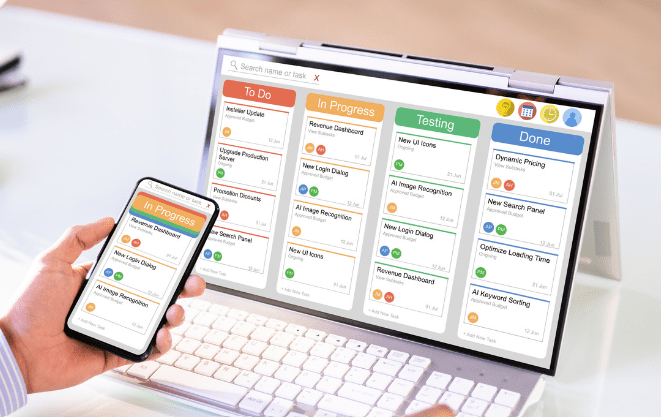Unveiling the Distinctions: Product Manager vs. Project Manager


Introduction:
In the realm of business and technology, two pivotal roles play a crucial part in shaping the success of a company’s initiatives: the Product Manager and the Project Manager. Although their titles sound similar, these roles differ significantly in their responsibilities, objectives, and focus. Understanding the distinctions between these roles is vital for organizations aiming to leverage the strengths of each position effectively. In this blog post, we will explore and compare the differences between a Product Manager and a Project Manager, shedding light on their unique contributions and areas of expertise.


Role Definition: The Product Manager (PM) serves as the visionary force behind a product or service, responsible for its strategic direction, market fit, and overall success. They work closely with stakeholders, development teams, and customers to drive innovation, define product features, and ensure its alignment with business goals. Conversely, the Project Manager (PgM) is accountable for overseeing the execution of a specific project, ensuring that it is delivered on time, within budget, and meets the predetermined objectives. They focus on planning, coordinating resources, and managing the project lifecycle.
Scope and Focus: The primary distinction between the roles lies in their scope and focus. Product Managers operate on a broader, long-term scale, guiding the development of a product from conception to launch and beyond. Their responsibilities encompass market research, identifying customer needs, defining product strategy, prioritizing features, and managing the product roadmap. Project Managers must focus on the operational aspects of a specific project. They break down the project into manageable tasks, create project plans, allocate resources, monitor progress, and ensure timely delivery.
Time Horizon: The time horizons of Product Managers and Project Managers differ significantly. Product Managers adopt a long-term perspective, looking ahead to strategic goals and the product’s lifecycle. They analyze market trends, conduct competitive research, and work on future iterations and enhancements. In contrast, Project Managers focus on short-to-medium-term objectives, dealing with the immediate project requirements, timelines, and milestones. Their attention centers on meeting project deadlines and managing potential risks and issues that may arise during project execution.
Stakeholder Interaction: Both roles involve extensive stakeholder interaction, but their approach and focus vary. Product Managers act as the bridge between stakeholders, customers, and the development team, striving to understand user needs, market dynamics, and business goals. They collaborate with various departments, such as marketing, sales, and engineering, to ensure a holistic understanding of the product’s requirements. Project Managers, while also engaging with stakeholders, tend to focus more on internal team coordination. They facilitate communication among team members, manage dependencies, and ensure that everyone is aligned with the project’s objectives.
Deliverables and Success Metrics: Product Managers and Project Managers are accountable for distinct deliverables and success metrics. For Product Managers, success is measured by the product’s market acceptance, customer satisfaction, and revenue growth. They strive to create a compelling user experience, drive product adoption, and achieve business objectives.
Project Managers in the meantime, are evaluated based on project completion within the defined constraints of time, budget, and scope. They ensure that the project is delivered on schedule, meets quality standards, and achieves predefined project goals.
Skill Sets and Expertise:  While there are overlapping skills, each role demands a unique set of competencies. Product Managers require a strong understanding of market dynamics, user research, product strategy, and business acumen. They must excel in communication, and stakeholder management, and have a keen eye for emerging trends and customer needs. Project Managers must have excellent organizational and planning skills, risk management expertise, and the ability to coordinate teams and resources effectively. They are adept at managing timelines, and budgets, and resolving conflicts to ensure smooth project execution.
While there are overlapping skills, each role demands a unique set of competencies. Product Managers require a strong understanding of market dynamics, user research, product strategy, and business acumen. They must excel in communication, and stakeholder management, and have a keen eye for emerging trends and customer needs. Project Managers must have excellent organizational and planning skills, risk management expertise, and the ability to coordinate teams and resources effectively. They are adept at managing timelines, and budgets, and resolving conflicts to ensure smooth project execution.
Both Product Managers and Project Managers require strong leadership skills, but their areas of focus differ. Product Managers must inspire and motivate cross-functional teams, drive consensus, and influence decision-making. Project Managers on the other hand need to lead by example, delegate tasks effectively, and manage conflicts within the project team.
Conclusion
While both Product Managers and Project Managers play pivotal roles in driving a company’s success, they operate at different levels of focus and responsibility. Product Managers are responsible for the strategic direction and long-term success of a product, while Project Managers oversee the execution of specific projects, ensuring timely delivery and adherence to predefined objectives. Understanding the unique contributions of each role is crucial for organizations aiming to maximize the potential of their product initiatives and project execution. By leveraging the strengths and expertise of both Product Managers and Project Managers, companies can achieve a harmonious balance between innovation, market fit, and operational efficiency.





Very interesting read. I knew these two were different but never thought very much about their differences. Indeed at first glance many may mistake the two as similar but their distinctions are a lot. But from what I see a lot of companies do not separate these two and mistake one for the other.
Hi Stratos K, Thank you for your feedback! I’m glad you found the article interesting and that it shed light on the differences between the two concepts. By recognizing and appreciating these differences, individuals and organizations can better navigate their choices and tailor their strategies accordingly.
If you have any further thoughts or questions on the topic, I’d be happy to discuss them with you.
Wow, what an insightful and well-written article! The way you have compared and contrasted the roles of Product Managers and Project Managers is clear and concise, making it easy for readers to understand the distinctions between the two. I appreciate how you highlighted the scope and focus of each role, their time horizons, stakeholder interactions, deliverables, success metrics, and required skill sets.
Moreover, your conclusion emphasizes the importance of leveraging the strengths of both roles to achieve a harmonious balance between innovation, market fit, and operational efficiency. This holistic approach is crucial for organizations to succeed in their product initiatives and project execution.
I appreciate your input. Your understanding hits the nail on the head. Thanks for the feedback.